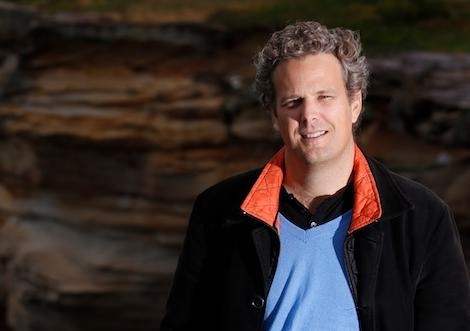Members of the public have the opportunity to financially support younger scientists who want to carry out cutting-edge research, with the launch of a new crowdfunding platform called Thinkable.org.
Created by UNSW scientist Dr Ben McNeil, with UNSW as the official launch partner, Thinkable.org aims to help address major shortfalls in funding for blue-sky research and early career scientists in Australia.
“Government research grants tend to favour established researchers over younger ones with a passion for discovery. Failure, risk-taking and pursuit of crazy-sounding, but potentially transformative, ideas are not supported under the current system,” says Dr McNeil, a QEII Research Fellow in the UNSW Climate Change Research Centre.
“But failure – paradoxically – is the basis of success. If researchers are not testing new ideas and failing, then they’re not innovating; they’re just making incremental advances in knowledge.”
More than four out of five applicants for competitive government research grants are unsuccessful, on average, and the new crowdfunding model is designed to complement, not replace, this system.
“Every Thinkable dollar will sponsor younger scientists in the lab to pursue potentially ground-breaking ideas,” says Dr McNeil.
UNSW Pro-Vice-Chancellor Professor Mark Hoffman says the University is proud to be a launch partner. “With success rates for competitive grants falling to record lows, particularly for early career researchers, we need to look at innovative new ways to support research.”
To join the Thinkable.org platform, scientists need to be working in a university or research institution and have at least two referees who endorse their project.
The first scientists who will showcase their research are five UNSW Gold Star recipients – researchers who have already been awarded up to $40,000 by UNSW because their projects were highly ranked by either the Australian Research Council or National Health and Medical Research Council, but just missed out on funding.
They have innovative ideas for studying ocean acidification, blindness, heart disease, alcohol consumption and obsessive compulsive disorder.
Researchers from Australia and around the world who join the platform will provide regular updates on their progress as well as short videos on interesting aspects of their research.
“The initiative will not only accelerate discovery, it will build greater trust and communication between scientists and the public, by democratising science,” says Dr McNeil.
What is Thinkable? Watch research videos and hear from UNSW researchers about their projects: http://thinkable.org/organisation/UNSW
The five UNSW researchers:
- Dr Tristan Sasse, UNSW Climate Change Research Centre, would like to take the powerful empirical algorithms that neuroscientists developed, and adapt them to map global patterns of ocean acidification.
- Dr Martin Rees, UNSW Medicine, would like to reveal how a protective lining in our blood vessels becomes damaged and sticky in heart disease and test whether novel drugs he's developed can prevent this.
- Dr Alishia Williams, UNSW School of Psychiatry, would like to continue her exciting research on internet-delivered cognitive training programs for obsessive compulsive disorder in order to increase access to treatments for this disabling mental health condition.
- Associate Professor Nick Di Girolamo, UNSW School of Medical Sciences, would like to carry out more research on his ground-breaking approach to using stem cells from the eye that has restored vision in some patients with corneal blindness.
- Associate Professor Lucy Burns,National Drug and Alcohol Research Centre, would like to study patterns of alcohol use by people over 45 in order to develop better programs on safe drinking for older people.
Media Contacts: Dr Ben McNeil, 9385 7068, 0401 336 857, b.mcneil@unsw.edu.au | UNSW Science media officer: Deborah Smith: 9385 7307, 0478 492 060, deborah.smith@unsw.edu.au


